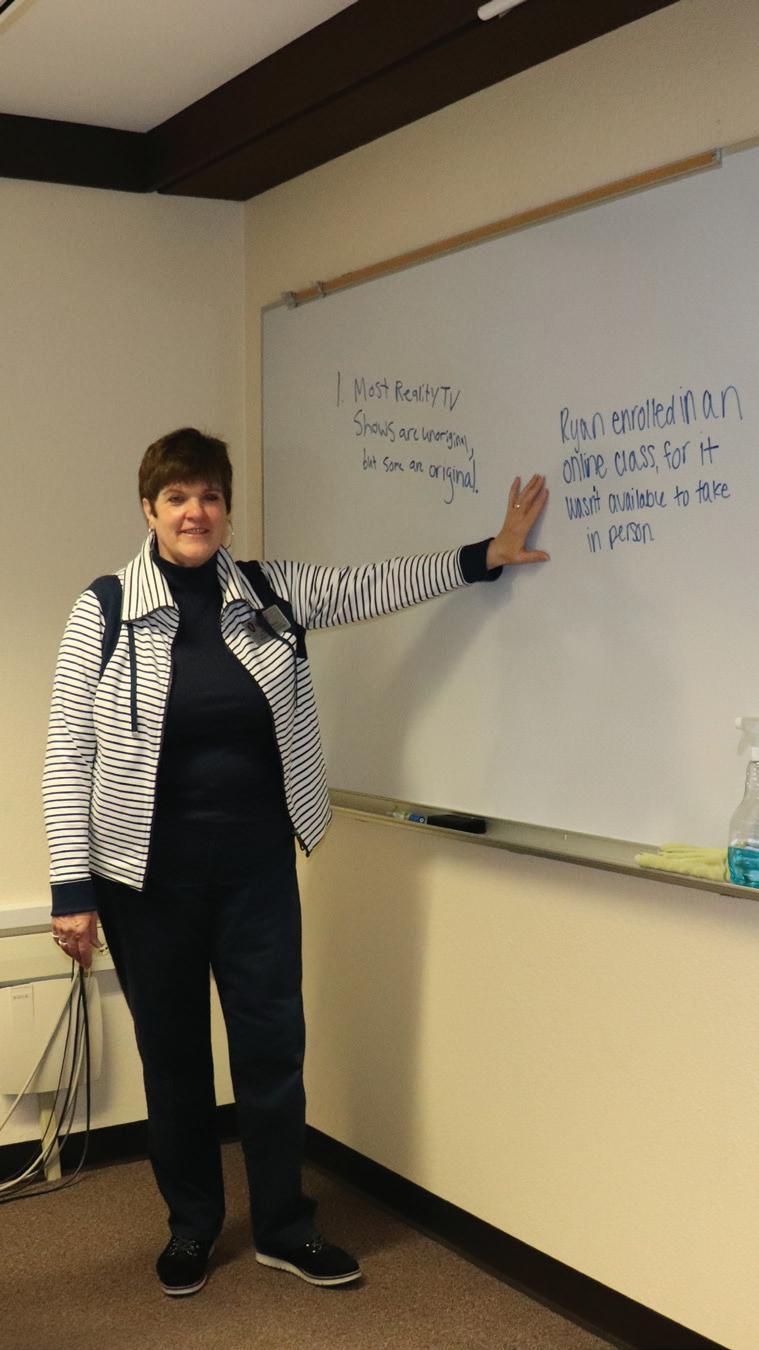
2 minute read
TikTok under fire Is Congress fanning the flames of conspiracy?
If you have TikTok, you likely have an idea of what’s been going on in Congress. You’ve seen the edits, the cuts, the clips, the templates.
DIf you don’t, though, you’ve still probably heard the news, albeit in a less… chaotic way. On March 23, TikTok CEO Shou Zi Chew was questioned for five hours by legislators about the government’s growing distrust toward the Chinese-owned company.
Advertisement
IBut while Congress remains adamant they are concerned about American data in the hands of the Chinese Communist Party (CCP), many TikTokkers are sure there is something else going on.
T“They want it banned cause they don’t control it,” commented one user under a TikTok detailing coverage of the Paris riots in connected to the ban threat.
A second user wrote, “It’s never been about safety and always about control.”
Another spelled it out: “They’re trying so hard to keep us out of those voting booths. They know TikTok is how we communicate and organize with each other.”
These are just a few lines from the billions of videos under the trending hashtag “tiktokban,” and they are definitely not the only ones sharing the sentiment.
Many users believe that the U.S. is only targeting TikTok because of its international scope. Because of its worldwide usage, particularly among younger demographics, the app has functioned as a means of all kinds of communication across country borders.
For example, many Iranians took to posting TikToks of their life under the Islamic regime; Ukrainian soldiers gained millions of likes from taping explosions, tanks, and gunfire; and, as mentioned earlier, Parisians have earned followers by capturing riots and fires in the streets of France.
To be clear, TikTok is more than a typical news alert app—it contains anything from crafting content to dance routines to risky challenges—but there is a reason so many young adults trust it solely for their current events.
For one, TikTok is extremely popular among younger consumers. Insider Intelligence estimates that over 60% of Gen Zers in the U.S. use the app at least once a month. So, if young people are consuming the app’s content, that also means young people are creating it—and, as many people expressed after Chew’s hearing, age matters.
“I’m old and fear things I don’t under- stand,” mocked one user, under a clip of Georgia rep Buddy Carter asking whether TikTok collected biometric data with its face filters.
“What is the level of education required to be a Congress person?” asked another.
The point of this article is not to necessarily sway you one or the other, although I admit I’m biased as a Gen Z TikTokker myself. Rather, what I’m trying to pose is that all this vitriolic discourse points to a much larger issue in our society: the incredible polarization of American political parties, ages, and ideologies.
For the past two decades, America has grown increasingly divided. Bridges between groups and parties have become more difficult to cross and far easier to burn. More than ever, our ideologies are dictating our lives, and serving to wall off the potential friends we don’t think will work for us. As an article from the Pew Research Center states, “Liberals and conservatives disagree over where they want to live, the kind of people they want to live around and even whom they would welcome into their families.”
The overwhelming anger toward Congress from Gen Z on TikTok reflects the strain of this seemingly uncrossable gap. Saying you fully believe your government is blatantly targeting something only to keep you under control is a scary thing. So is criticizing the people in charge for being out of touch, or, put simply, stupid. But these things have always kinda-sorta been said—pretty much since government as we know it began.
What I think is scarier is the lack of listening between one side and the other. TikTok, with its variety of perspectives, cultures, and people, has (I feel) the power to diminish this, or at least dull the flames.
Once again I’m not trying to persuade you. I’m simply saying it makes me wonder: why would Congress not support a place where this could happen?








